According to information from the National Center for Hydro-Meteorological Forecasting, a cold air mass from the North is currently moving down to our country and will affect the Northern and North Central regions from the night of January 25.
Warning of severe cold and recommendations for health protection during cold spell
According to information from the National Center for Hydro-Meteorological Forecasting, a cold air mass from the North is currently moving down to our country and will affect the Northern and North Central regions from the night of January 25.
This cold front will bring severe cold, with frost and frost in mountainous areas possible. The weather warning has raised concerns about people's health, especially in conditions of plunging temperatures and strong winds.
Specifically, from January 26, in the Northern and North Central regions, temperatures will drop sharply, with severe cold, especially in high areas, frost may appear.
The lowest temperature in this cold air mass in the North and North Central regions ranges from 9-12 degrees Celsius, in the mountainous areas of the North 6-8 degrees Celsius, and in the high mountains it can drop below 3 degrees Celsius.
Areas from Quang Binh to Hue will have temperatures ranging from 14-17 degrees Celsius, and from Da Nang to Quang Ngai it will be 16-19 degrees Celsius. In Hanoi, from January 26, the weather will be very cold with the lowest temperature commonly ranging from 9-12 degrees Celsius.
In particular, from early morning on January 26, the Northeast wind will gradually increase to level 7, gusting to level 9 in the Gulf of Tonkin, with rough seas and waves from 2.0 to 4.0 meters high. From the afternoon of January 26, the North East Sea, including the waters of the Hoang Sa archipelago, will experience strong Northeast winds of level 6-7, gusting to level 8-9, with waves from 3.0 to 5.5 meters high.
Areas from Quang Tri to Ca Mau and the central South China Sea (including Truong Sa archipelago) will also have strong winds and big waves, seriously affecting the operations of ships.
In addition, the Northern and North Central regions are likely to experience rain, showers and thunderstorms from the night of January 25-26, with the possibility of tornadoes, lightning and strong gusts of wind.
Localized heavy rains may cause flooding in low-lying areas and increase the risk of flash floods and landslides on hillsides. Strong winds and high waves at sea may also affect fishing and navigation.
To protect health in extreme weather conditions, the Ministry of Health has issued important recommendations. People, especially the elderly, children and those with underlying medical conditions, should limit going outdoors between 9pm and 6am when the weather is too cold and windy.
When going out, you need to wear warm clothes, including a coat, thick pants, scarf, hat, gloves, socks, and mask to protect your body from the cold wind. At the same time, you need to keep your body dry and avoid getting wet, especially the neck, hands, and feet.
In addition, it is necessary to avoid exposure to cigarette smoke, charcoal smoke, and not drink alcohol, especially in mountainous areas, because alcohol constricts blood vessels, causing high blood pressure, which can lead to stroke or death.
Avoid bathing after 10pm and do not bathe for too long or in places that are not well-ventilated, as this can cause dangerous heat shock. When cleaning the body, use warm water and gargle with warm salt water to help disinfect the throat and limit sore throats.
To ensure health in the cold season, it is necessary to supplement adequate nutrition with basic groups of substances such as starch, protein, fat, vitamins and minerals.
Especially for heavy workers, the elderly and children, it is necessary to supplement with vitamins A and C to increase resistance. Avoid eating cold foods or food taken out of the refrigerator because it can easily make the body cold.
In addition, people with a history of cardiovascular disease, high blood pressure or respiratory diseases need to strictly follow their doctor's instructions on diet and medication use.
Outdoor workers need to keep their bodies warm, especially their necks, chests, limbs, and don’t forget to wear protective gear, such as waterproof clothing, hats, gloves, and boots. If you have to work outdoors for a long time, you need to make sure you stay dry and don’t expose your body to moisture.
In addition, in the cold season, the use of charcoal or honeycomb coal for heating in closed rooms should be absolutely avoided, as it can cause CO (Carbon Dioxide) poisoning.
If you need to use charcoal, use it for short periods of time and keep the windows open to ensure ventilation. Also be careful not to place infrared heaters near young children and the elderly, as the heat from infrared rays can cause dry skin, dry noses, or burns.
When detecting signs of body cold such as shivering, fatigue, numbness in limbs, need to quickly warm the body. In particular, newborns with signs of bright red or cold skin also need to be warmed immediately. Symptoms of hypothermia such as fever, cough or exhaustion need to be examined and treated promptly at a medical facility.
With careful preparation and specific precautions, people will be able to weather this cold spell safely and stay healthy throughout the Tet holiday.
Source: https://baodautu.vn/canh-bao-ret-dam-ret-hai-va-khuyen-cao-bao-ve-suc-khoe-trong-dot-khong-khi-lanh-d242833.html



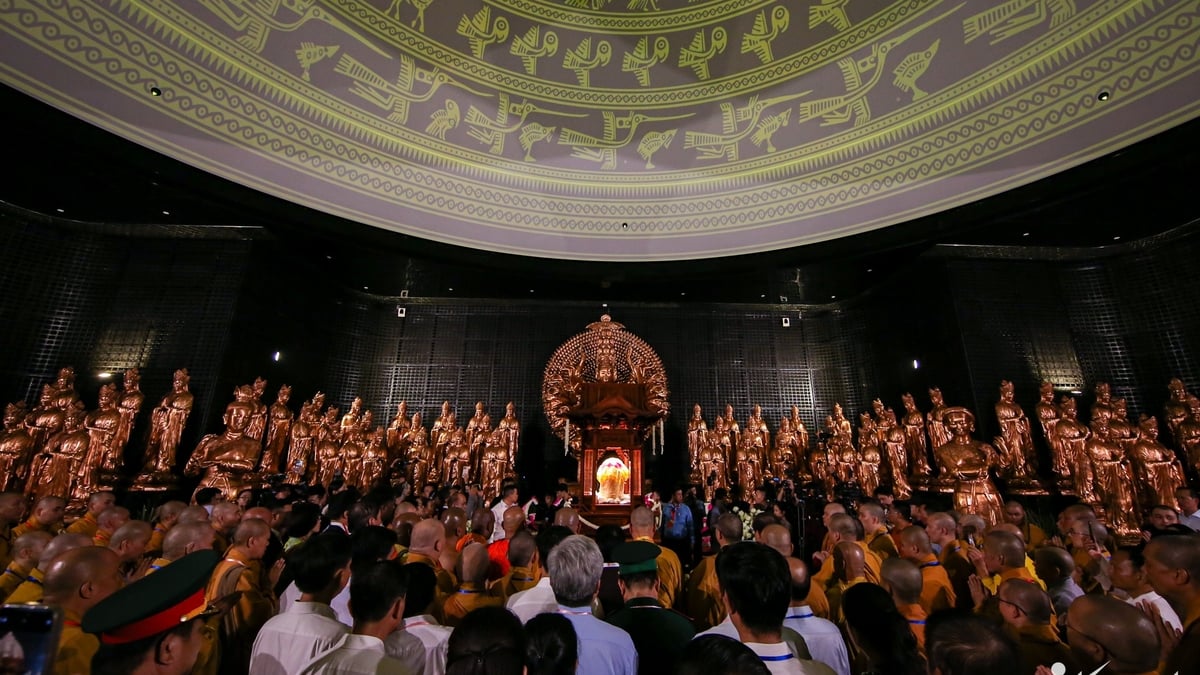
![[Photo] President Luong Cuong presents the decision to appoint Deputy Head of the Office of the President](https://vphoto.vietnam.vn/thumb/1200x675/vietnam/resource/IMAGE/2025/5/8/501f8ee192f3476ab9f7579c57b423ad)
![[Photo] General Secretary To Lam begins official visit to Russia and attends the 80th Anniversary of Victory over Fascism](https://vphoto.vietnam.vn/thumb/1200x675/vietnam/resource/IMAGE/2025/5/8/5d2566d7f67d4a1e9b88bc677831ec9d)
![[Photo] National Assembly Chairman Tran Thanh Man chairs the meeting of the Subcommittee on Documents of the First National Assembly Party Congress](https://vphoto.vietnam.vn/thumb/1200x675/vietnam/resource/IMAGE/2025/5/8/72b19a73d94a4affab411fd8c87f4f8d)
![[Photo] Prime Minister Pham Minh Chinh meets with the Policy Advisory Council on Private Economic Development](https://vphoto.vietnam.vn/thumb/1200x675/vietnam/resource/IMAGE/2025/5/8/387da60b85cc489ab2aed8442fc3b14a)

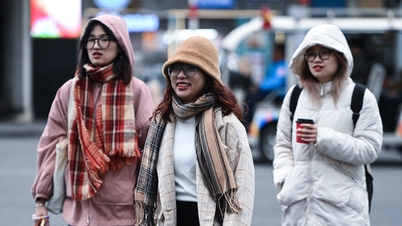



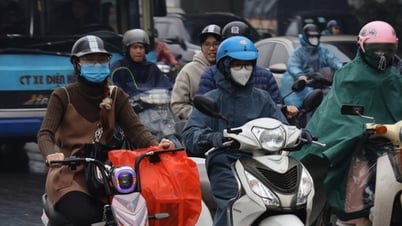





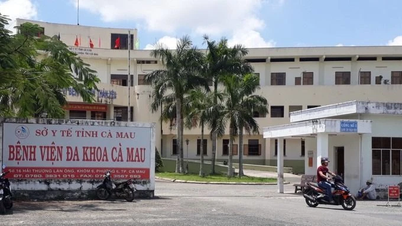

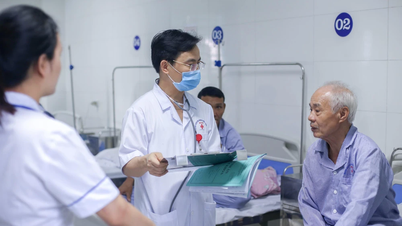





























































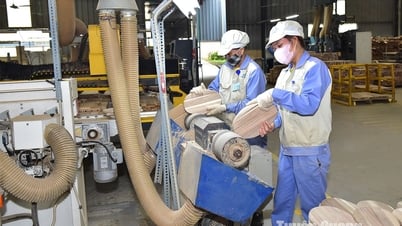













Comment (0)